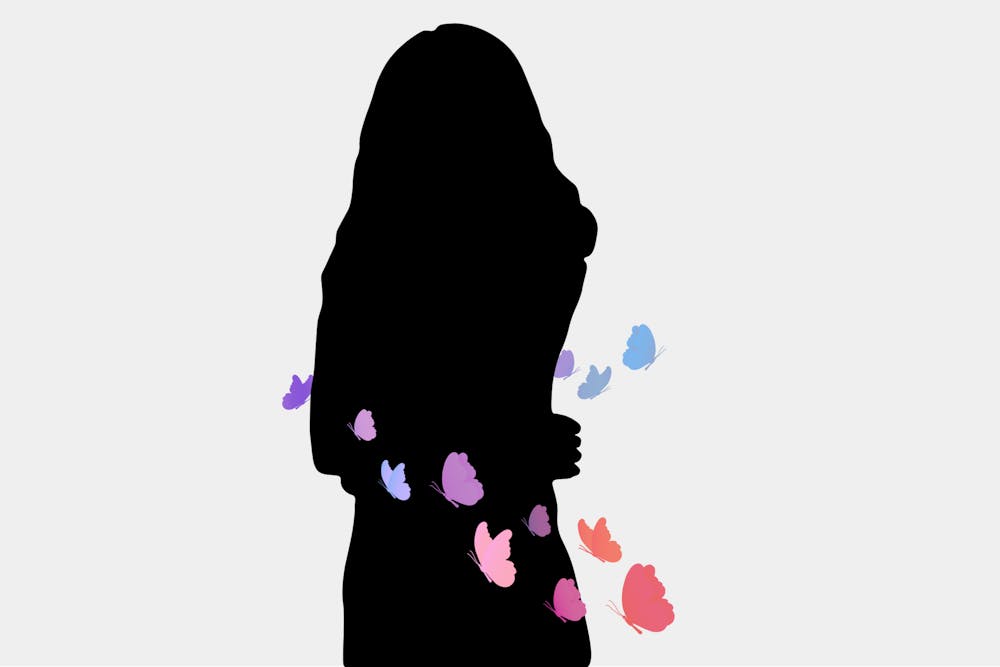
Feb. 27, 2020 marked another year that I got to participate in National Eating Disorder Awareness Week. It also marked another year that I feel grateful to be alive to do so.
As the president of UPenn’s Project HEAL organization, advocating for people with eating disorders is important to me during this week and every week. Thirty million Americans will suffer from an eating disorder in their lifetime, but only 20% will receive treatment due to financial barriers and social stigma surrounding the disease. I feel lucky that I had the support from family and friends as well as access to quality treatment. Others are not as fortunate, as eating disorders continue to be one of the deadliest mental illnesses, surpassed only by opioid addiction. Every 62 minutes we lose another innocent life due to the direct effects of an eating disorder.
Following recovery from my own battle with an eating disorder, I feel a personal duty to help others suffering from this illness in any way possible. So, when one very brave Nursing student approached me with concerns about a diet tracking assignment in her nutrition class, I felt compelled to act.
I know what it’s like to look at a plate of food and be able to tell the exact calorie and fat content of every item on it with shocking accuracy. I was my own personal MyFitnessPal for years.
In the height of my eating disorder as well as through my recovery, I would count calories, track my weight, and use a dieting app any time I had the opportunity to do so. An assignment encouraging me to do all of these things would have been nearly impossible to turn down.
I would have given into my eating disorder. I would not have had the strength to ask for an alternative assignment nor the awareness to recognize that I was fueling my own eating disorder by completing the one originally assigned.
One of the hardest things about eating disorders is that many of the symptoms can be disguised as healthy behaviors. Going to the gym all the time, tracking calories, or logging food intake may seem healthy.
However, for a person with an eating disorder, it is not. What may seem like a harmless assignment with a simple alternative for one person may not be for those who have suffered, currently suffer, or may be at risk for developing an eating disorder. Some students’ appreciation for this assignment cannot overshadow the struggle or risk that other students face.
I am a firm believer that full recovery is possible and I am proud to say that I have been recovered for more than five years now. However, I admit that in the past when given the choice between my eating disorder and literally anything else, my eating disorder would win every time. Eventually, the voice in my head became quieter with years of therapy, nutritional counseling, and perseverance. I have learned to unlearn all of the calorie contents of foods that I once had memorized like the back of my hand.
We can avoid another situation where students have to fight this voice. It is our responsibility to do so.
In addition, amending this Nursing assignment to be more sensitive to students vulnerable to eating disorders will not detract from the capacity to provide quality nutrition care for future patients. As an aspiring physician, I recognize that my primary responsibility will be my patients and to understand the importance of nutrition and its implications in health and disease.
In a situation where a patient's illness requires them to track food, weight, or calories, it is something I will be happy to help them with. But, as one Nursing student explained to me, “I don’t need to count my own calories or track my own weight to be able to help a future patient that has a medical necessity to do so.”
Thus, depersonalizing this assignment by focusing on the nutrition of hypothetical patients with a variety of diseases could help protect the well-being of students vulnerable to eating disorders.
As a result of the overwhelming responses that I have received from so many students affected by this assignment, I have drafted a petition to help make improvements to this assignment that will hopefully make it more inclusive and positive for all. I am open to suggestions on how we can adjust the assignment to teach students the importance of nutrition while also protecting students that are vulnerable to eating disorders, and I would love to discuss further. Please sign this petition or reach out to me if you believe that we need to put students’ mental health first.
Thank you so much to the brave student that brought this to our attention and the many others who have shared their experiences with me since. Your voice matters and you are not alone.
For questions, suggestions, or to discuss further, please contact me at cmm5567@sas.upenn.edu
For support and resources, please see Project HEAL or contact the National Eating Disorder Association helpline.
CHRISTINA MIRANDA is a junior in the college from Milford, NJ majoring in Biological Basis of Behavior. Her email address is cmm5567@sas.upenn.edu
The Daily Pennsylvanian is an independent, student-run newspaper. Please consider making a donation to support the coverage that shapes the University. Your generosity ensures a future of strong journalism at Penn.
Donate



